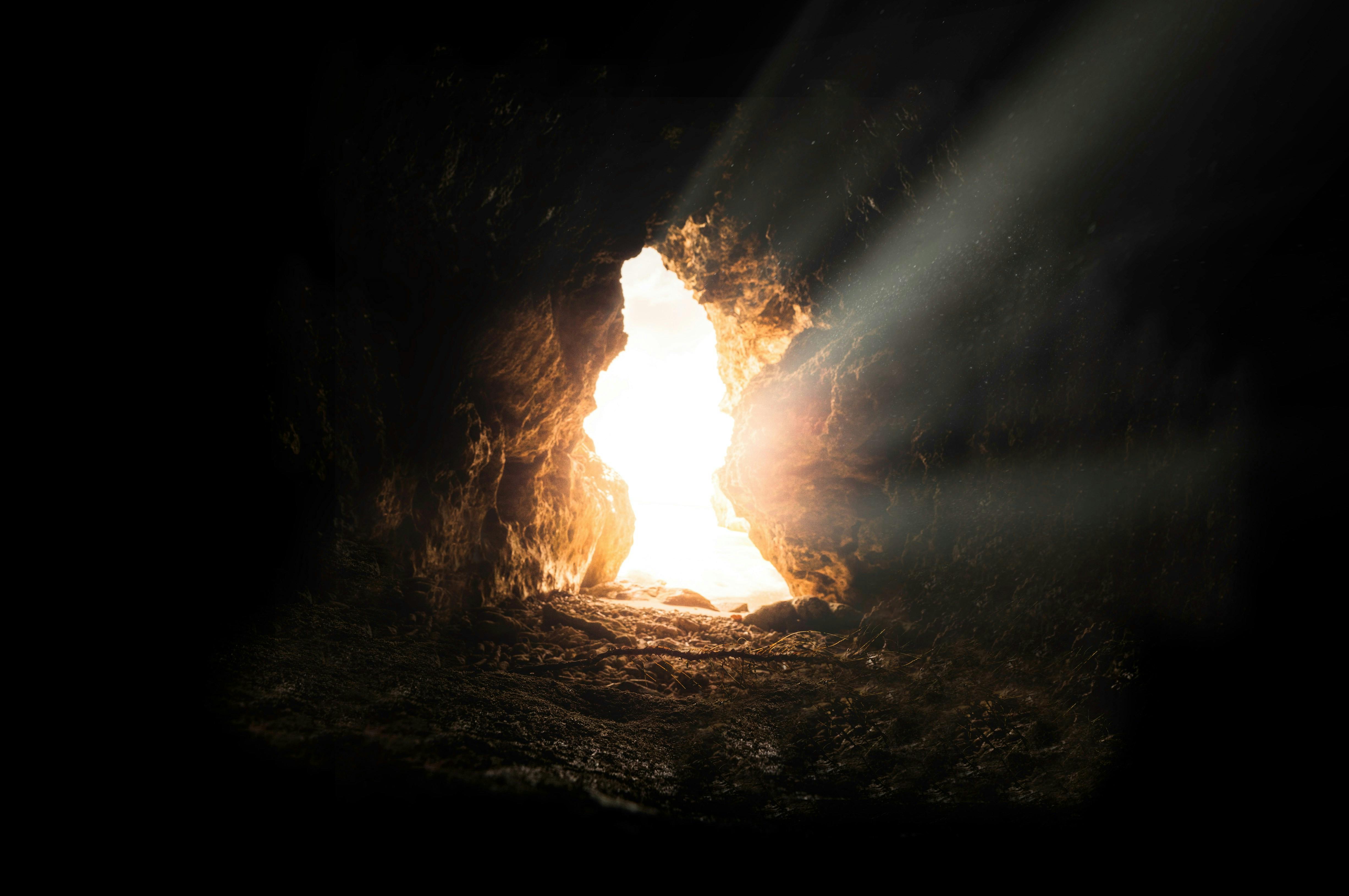Since the beginning of time, the best stories have the hero dying.
I found that out in the humorously scarring kind of way. As a kid in the 1970s, it was a rarity in my family if we went to the movies (yes, we had electricity back then). I don’t remember many of the trips; the casts, titles, and plots blend together.
There was, however, one particular viewing where a significant plot point stuck with me, even to this day.
At the end of this specific movie, the hero is gunned down. I don’t know if the director had some positive spin in the dialogue that my kid brain missed, but to me, the movie ended with this good guy getting killed—with no silver lining. End of story. Credits roll. Tears flow (from me).
I still remember leaving the theater and my mom kneeling to check on me (my parents felt awful for subjecting me to that mature screening). The injustice struck a chord in me, even at that age. In my mind, good guys and girls should win.

Now, years and more back pain later, I’ve learned about Jesus—who I would say is the ultimate hero (I think the book on him is better than any of the movies, for the record). And in His story, Jesus—who is God—dies. He embraces crucifixion for the sins of the world and has his lifeless body laid in a sealed tomb.
Yes, many of us know the post-credit scene that shows that He does come back to life, but the question remains: Shouldn’t God be a little more proud than to let himself die? Pride aside, how is it even possible that God died? That sentence, even in itself, feels like an oxymoron or some sort of paradox. Gods can’t die…right? HOW did God die?
How Did God Die?
How did God die? God cannot die, so he sent Jesus—a being who is fully human and fully God—to die by crucifixion.
Super easy and not insanely difficult to wrap your mind around, right? Let’s break it down some more. And to be clear, I don’t mean to ask how God physically died. What I mean to ask is, how does God, who is supposed to be, I don’t know, indestructible, die? And not just die, but then come back to life? Once someone dies, don’t they lose any ability to regenerate themselves? Otherwise, were they even dead to begin with?
I believe it starts with knowing the kind of God that the God of the Bible is—and to do that, we need to know who Jesus really is.
Jesus Was Fully Human and Fully God
The Bible is very clear that Jesus is God (Hebrews 1:3), and not only God but a mighty God (Isaiah 9:6). In the Gospel of John, we gain a bit more insight into how this came to be:
In the beginning was the Word, and the Word was with God, and the Word was God. He was in the beginning with God. (John 1:1-2).

A few verses later, we see even more of the fullness of who Jesus is. We see that Jesus, nicknamed by John as “The Word,” came to earth and fully experienced his life here as a human being.
The Word became flesh and blood, and moved into the neighborhood. We saw the glory with our own eyes, the one-of-a-kind glory, like Father, like Son, Generous inside and out, true from start to finish. (John 1:14)
Here, we notice that God, the creator of the universe, also chose to be a human being. He lived a perfect life on earth and never sinned (Hebrews 7:26), yet willingly diminished himself to be susceptible to tiredness, hunger, bathroom breaks, sickness, and death.
So, why was Jesus necessary? Why would God subject himself to such conditions?
How Did God Die? Jesus, as Fully Human, Fully God, Could Complete the Mission
Sin—our sin—demanded a sacrifice, and God loved us too much to leave us without hope. So God did what only God could do: answer that call through Jesus—someone who could die, being made of flesh and blood—because of his love for us.
For the wages of sin is death, but the free gift of God is eternal life in Christ Jesus our Lord. (Romans 6:23)
Jesus chose to diminish himself beyond our comprehension—to temporarily forsake his existence amongst perfection in heaven to walk amongst brokenness. He chose to exist with those whom he loved, knowing full well that most would end up hating him and that they would brutally murder him.

For one will scarcely die for a righteous person—though perhaps for a good person one would dare even to die—but God shows his love for us in that while we were still sinners, Christ died for us. Since, therefore, we have now been justified by his blood, much more shall we be saved by him from the wrath of God. (Romans 5:7-9)
Jesus’ death and resurrection gave humankind the gift of eternal life. But if Jesus really died, like, didn’t-have-a-pulse-kind-of-died, how did he come back to life? Even on supernatural terms, how does that work?
How Did Jesus Rise From the Dead?
For this reason the Father loves me, because I lay down my life that I may take it up again. No one takes it from me, but I lay it down of my own accord. I have authority to lay it down, and I have authority to take it up again. This charge I have received from my Father.” (John 10:17-18)
I don’t believe we should ever expect to understand God’s complexities and depths fully, and one of the biggest head-scratchers of them all is the Holy Trinity—the idea that God exists amongst three ‘persons’—Father, Son (Jesus), and Holy Spirit.
Don’t worry; millions of people over thousands of years have pondered how this very thing can be—and yet it is. So why is that so important to our question? Because through it, we can see how this Godhead of three distinct beings executed the plan to rescue us from sin through Jesus’ death and then worked together to raise Jesus from the dead.

God the Father Knew and Directed the Plan
Jesus reveals this reality just before he’s arrested and sentenced to death. He’s praying in the garden of Gethsemane, deeply distraught over what is about to happen on the cross:
“Father, if you are willing, remove this cup from me. Nevertheless, not my will, but yours, be done.” (Luke 22:42)
Jesus knew the plan was his death and resurrection, but clearly, he was calling upon the Father here. I paraphrase this verse: “If there’s another way, Dad, let’s do that. But if not, I’m trusting Your plan!” Which leads us to…
God the Son Was the Willing Sacrifice
Jesus was a willing sacrifice who, even though he submitted himself to death for our sake, was in total control. To be clear, He felt every crack of the whip, every thorn piercing his scalp, and each nail through his hands and feet. He didn’t flip some holy switch to get above it all. He experienced this excruciating death as a fully human man and even told his disciple Peter to stop trying to halt the process:
Then Jesus said to him, “Put your sword back into its place. For all who take the sword will perish by the sword. Do you think that I cannot appeal to my Father, and he will at once send me more than twelve legions of angels? But how then should the Scriptures be fulfilled, that it must be so?” (Matthew 26:52-54)
Jesus did die—fully, without a pulse, dead. For three days, He lay in the tomb. But then something miraculous happened—something that He told us would happen—a scandalous act that has and will continue to ripple across humanity forever: He came back to life.
God the Spirit Raised Jesus Back to Life
The Romans who crucified Jesus thought they might have solved the problem. The religious elite thought their scheme had shut the mouth of the heretic. Even Jesus’ followers who loved him were holed up, embracing their fear and not knowing what to do next.
Then God the Spirit moved with the power only God possesses. He brought life from death in the body of Jesus:
If the Spirit of him who raised Jesus from the dead dwells in you, he who raised Christ Jesus from the dead will also give life to your mortal bodies through his Spirit who dwells in you. (Romans 8:11)
The Spirit of God is the Spirit of life. The same Spirit that regenerated Jesus’ body lives in each of us who believe in his death and resurrection.

Jesus’ Death Means We Don’t Die
God’s love for us is unending and unyielding. So, although we will experience a physical death at the end of this life. Because of the sacrifice of Christ, anyone who believes in him is promised eternal life—and I mean anyone!
Ever done the wrong thing? (welcome to the club)
Ever said the wrong thing? (welcome to the club).
Ever thought the wrong thing? (you get the idea).
Every single person is welcome to join God’s family. And you don’t “clean up” before joining His family. You join as a means to get clean. In other words, come exactly as you are with all your faults. That’s what I’ve done, and my life has never been the same. I’m still flawed. I still make mistakes. But I have hope, love, and a future unlike anything I had before.
Is Jesus’s story one of injustice or justice? Pure evil or unfathomable goodness? Losing or winning? I believe the short, incomplete answer is both, and yet it was necessary to be so, to give life to all who are willing:
“For God so loved the world, that he gave his only Son, that whoever believes in him should not perish but have eternal life. For God did not send his Son into the world to condemn the world, but in order that the world might be saved through him. (John 3:16-17)
Disclaimer: This article is 100% human-generated.
Reflections to share? Got an idea for an article? Email us at articles@crossroads.net










